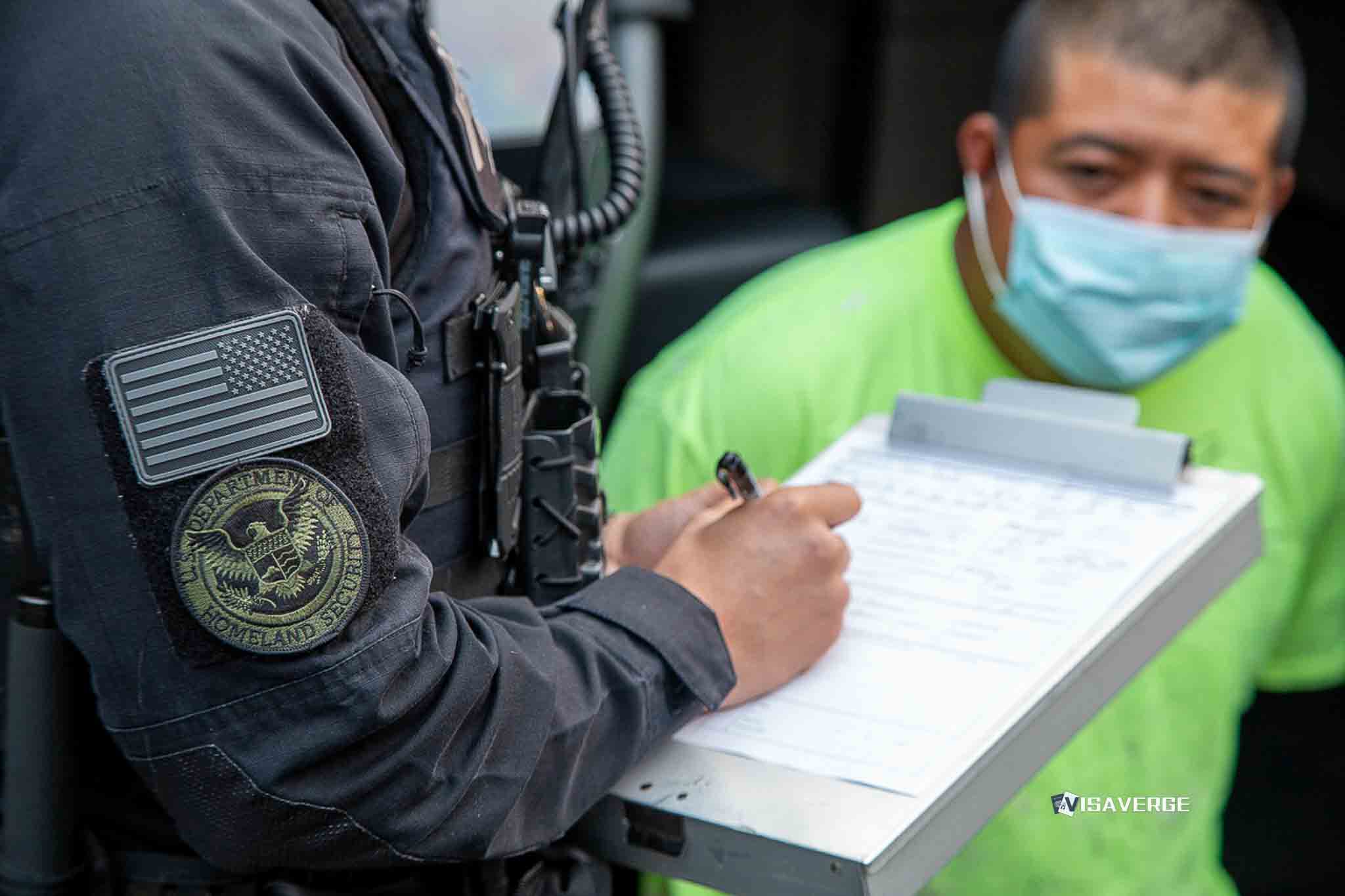First, list of detected linkable resources in order of appearance:
1. Department of Enterprise, Trade and Employment (mentioned under “Employment permits — basic guidance”)
2. Official resource: Department of Enterprise, Trade and Employment (policy) (the bullet under Employment permits — already second mention)
Now the article with government links added (only the first mention of each resource linked, preserving all content and structure):

(CORK, IRELAND) A Cork court heard that an employee of J&I New Ventures Ltd, trading as Apache Pizza, was found working illegally after being refused a work permit twice, according to evidence presented at Macroom District Court in 2025. Inspectors from the Workplace Relations Commission discovered the worker during a site visit and confirmed the individual had neither a valid visa nor a work permit.
The company, which runs three outlets and employs about 15–18 people, told the court that all other staff had proper documents and that this case was the only exception. The business admitted the error and had no previous convictions. The judge imposed a €300 fine and allowed four months to pay, while declining to award legal costs against the company.
In remarks from the bench, the judge stressed that employers must ensure all employees hold the correct permission to live and work in Ireland, and that the duty to check status rests squarely with the business. The case highlights the steady enforcement approach of both the Workplace Relations Commission and the Irish courts in dealing with illegal employment.
What happened in court
- Officials told the Cork court the worker had applied for a work permit twice and been refused both times before taking up the job.
- The court noted the person lacked both an appropriate visa and any valid work permit on the inspection date.
- That combination — no immigration permission and no work authorization — made the case straightforward from an enforcement standpoint.
“Employers must ensure all employees hold the correct permission to live and work in Ireland.” — Court remarks
Legal duties and enforcement context
Irish law places a clear duty on employers to check and keep evidence that each person on the payroll has the right to work. That means verifying identity, immigration permission, and, where needed, a valid employment permit. Failure to do so can lead to fines and other sanctions, including reputational harm.
Authorities continue to warn that a person found working without proper permission may face immigration consequences, and the employer risks penalties. According to analysis by VisaVerge.com, inspections by the Workplace Relations Commission have remained active, with food service businesses and other public-facing employers receiving regular compliance checks.
While most employers comply, even a single lapse can end up in court, as happened in this case. Apache Pizza’s operator accepted responsibility in court and said internal practices would be tightened.
Employment permits — basic guidance
For non-EEA hires, Ireland offers different employment permit types, each with its own rules, eligible occupations, and pay levels. Employers and applicants can find official guidance from the Department of Enterprise, Trade and Employment.
- Official resource: Department of Enterprise, Trade and Employment
The department’s employment permits page explains criteria for common permit types and the evidence needed to complete applications.
Common reasons permits are refused
While the court did not disclose the specific reasons for this individual’s refusals, refusals commonly result from:
- Role not meeting the permit type rules
- Salary thresholds not being met
- Documentation gaps or incomplete evidence
Practical steps for employers and workers
This case offers a clear checklist for small businesses, including franchise operators and independent outlets, that hire staff quickly to meet demand.
- Build and maintain a right-to-work file for each employee:
- Copies of passports
- Residence permissions
- Where needed, permit details
- Set calendar reminders to check expiry dates and ask staff to share renewals early.
- Train managers who handle hiring to spot common issues (e.g., expired stamps, missing permit evidence).
- Do not schedule or employ a person whose permit application is still pending — a pending application is not permission to work.
- If a permit is refused, do not employ the person unless they have another legal basis to work.
Workers should also protect themselves:
- Taking a job without proper permission can affect future immigration options and leave a person without normal employment protections.
- If your permit is refused, review the refusal reasons, seek advice, and consider reapplying only if the role, pay, or documentation can be improved.
- If obtaining a permit is impossible for the role, explore other legal routes rather than risking unauthorized work.
Court outcome and wider implications
In this case, the judge accepted the company’s admission, noted the absence of prior convictions, and treated the matter as a compliance lapse rather than a pattern. Still, the conviction and €300 fine serve as a warning to businesses across Cork and beyond that the courts will act when inspections uncover breaches.
The court also addressed confusion raised in public discussion:
- There was no evidence connecting this case to Domino’s Pizza or to recent Supreme Court decisions on the employment status of delivery drivers.
- Those Supreme Court decisions dealt with employment classification for tax and employment law purposes and do not change the requirement for non-EEA nationals to hold a work permit when one is required.
- The Apache Pizza case in Macroom involves immigration compliance, not worker classification.
Hiring overseas talent — best practice checklist
To avoid permit refusals and enforcement action:
- Check the occupation list and confirm the job fits an eligible category.
- Confirm the salary level meets current thresholds.
- Ensure the business is established and trading to pass standard checks.
- If refused, read the reasons closely and consider whether a revised job description, adjusted pay, or different permit category would meet criteria.
- If not, avoid employing the candidate and consider other recruitment options.
Sector pressures and continued inspections
Local business groups in Cork say the hospitality sector remains under staffing pressure, particularly during peak seasons. That reality does not change the law. The Cork court’s message was direct: compliance must come first.
- Even small fines add up when reputational damage and management time are counted.
- Repeat breaches can bring heavier consequences.
The Workplace Relations Commission continues nationwide inspections, often unannounced. For most employers, a tidy set of files and clear hiring procedures make such visits routine. For those who fall short, inspectors will refer cases to court, as happened here. The Apache Pizza case shows how quickly a single gap can become a legal problem.
Final takeaway
Businesses and workers who need clarity should rely on official guidance and avoid mixed messages on social media. The Department of Enterprise, Trade and Employment’s employment permit pages set out current rules, processing practices, and the documentation that supports stronger applications. Keeping to the letter of those rules is the safest path — for the employer responsible for hiring decisions and for the worker building a future in Ireland.
This Article in a Nutshell
In Macroom District Court, J&I New Ventures Ltd (trading as Apache Pizza) admitted employing a person without a valid visa or work permit after two permit refusals. Workplace Relations Commission inspectors uncovered the violation during a site visit. The company operates three outlets and employs about 15–18 people; it accepted responsibility and had no prior convictions. The judge fined the business €300 and allowed four months to pay, emphasizing that employers bear the duty to check right-to-work status. The case highlights continued active inspections, common reasons for permit refusals, and practical steps employers should take, referencing official guidance from the Department of Enterprise, Trade and Employment.








